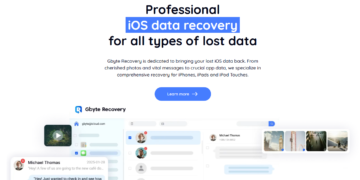Are you a local estate agent looking to target homeowners in your area wanting to sell? If so, Google Ads is the marketing channel for you. By targeting motivated homeowners who are interested in selling, you can get your name and contact information in front of them at the right time, when they’re most likely to be considering using an agent.
This article provides tips on how to best utilise Google Ads to target potential clients in your local area. The aim is to help you get the most out of your budget and ultimately generate more leads and sales.
7 Tips for Local Estate Agents to target sellers with Google Ads
1. Find the right keywords
The first and most important step is to target the right keywords. What this means is that you need to identify the words and phrases that homeowners are using when they’re searching for an agent to help them sell their house. Keyword research can be done using tools like Google’s Keyword Planner and Moz’s Keyword Explorer.
Some example keywords that you could target include:
- “Find an estate agent”
- “Sell my house”
- “Estate agents in my area”
- “Best estate agent for selling a house”
It is important to understand the user’s intent when searching. The user’s intent is what they are looking to do when they search. There are four main types of user intent: navigational, informational, commercial, and transactional. It is best to pick keywords that will help bring motivated traffic that has commercial or transactional intent.
2. Select the right locations
Google Ads allows you to target specific locations, which is perfect for estate agents who want to make sure their ads are shown to homeowners in their area. You can target people searching for services in a certain town, city, or even postcode.
The way to ensure you are targeting the right people, in the right locations, is to select areas or provide postcodes. This gives you the estate agent full control of the perimeters of the area in which your adverts will be displayed to potential home sellers.
The radius targeting feature in Google Ads can be a great way to reach potential customers who are located near your business. However, there are a few things to keep in mind when using radius targeting. First, you’ll want to make sure that your target location is accurately represented on your map. If not, you may end up targeting people who are outside of your desired area. Second, you’ll need to consider the size of your radius. If it’s too small, you may not reach enough potential customers. If it’s too large, you may end up wasting money on ads that are seen by people who are not likely to be interested in your business.
3. Set up a local and national campaign
The campaign structure will impact how well your Ads perform and how much control you have over where your Ads are shown. For estate agents working with a limited budget, it is recommended to use only a Search Network campaign. Even though you can reach a larger audience with Display Select Selected, traffic tends to be less motivated, resulting in higher costs with lower leads.
There are numerous methods for structuring campaigns, but one option is to structure them based on the location, and keyword groups you are targeting. Two recommend campaigns are local and national.
- Local – Many people looking for local services won’t include the area in their query, e.g. ‘sell my house’, ‘estate agent near me’. Create one campaign that targets specific locations local to your business and where you provide your services. Google Ads geolocation targeting will display your ad to those conducting the search within the locations you have specified.
- National – Another campaign could target people searching for services nationally, e.g. ‘sell my house london’. The idea is to target those that may not live locally to where they want to sell their house i.e. it is their second home, or they are helping sell a house on behalf of a loved one. They may live in Manchester, but they want to sell a house in London. Set the location of the campaign to the entire country, and don’t include key terms such as ‘sell my house’, ‘estate agent near me’.
4. Phrase or Exact Match
There were three types of term match settings in Google Ads :
- Broad match – The most general type of keyword match setting, which means that your ad may show for misspellings, plural forms, related searches, and other relevant variations of your keyword.
- Phrase match – More specific than broad match, and allows your ad to show only when someone searches for your exact keyword phrase or a close variation of it.
- Exact match – is the most specific type of keyword match setting, which means that your ad will only show when someone searches for your exact keyword phrase, with no other variations.
There are now only two now, as of February 2021, ‘broad match’ has <a href=”https://www.optily.com/resources/ad-platforms/google-is-simplifying-search-by-ditching-broad-match-modifier/”>taken on the behaviour of phrase match</a>. It is recommended to use a combination of both phrases and exact matches. ‘Exact match’ will result in fewer impressions, though will result in higher click-through rates (CTR), whereas ‘phrase match’, will result in higher impressions but probably lower CTR, but will still provide valuable traffic.
5. Use relevant ad copy and extensions
Your ad copy should be relevant to the keywords you are targeting, as well as the products or services you offer. If your ad is not relevant to what someone is searching for, they are less likely to click on it. Google also scores ads based on relevancy and quality, so ensure that the content provided in the advert is accurate and relevant to the content that is provided on the landing page.
Ad extensions can also be a great way to provide additional information about your business and make your ad more relevant. Ad extensions can include things like your phone number, address, website links, and even customer reviews. Extensions are proven to increase CTR and conversions. According to Google, ads with an extension see a 20% increase in CTR over ads that don’t use extensions.
6. Review and Improve
Advertising is an ongoing process, and it is important to review your campaigns regularly to ensure that they are performing as well as they can be. Reviewing your analytics data will give you insights into how your ads are performing and where improvements can be made.
Some things you should look out for include:
CTR – A low CTR could indicate that your ad is not relevant to what people are searching for, or it could be poorly placed. Review your ad copy and target keywords to see if there are any improvements that can be made.
Conversion rate – The number of conversions (sales, leads, etc.) divided by the number of impressions. If you have a low conversion rate, it could indicate that your ad is not relevant to what people are searching for, or that there is a problem with your landing page. Review your ad copy and target keywords to see if there are any improvements that can be made.
Cost per conversion – The cost of your ad divided by the number of conversions. A high cost per conversion could indicate that your ad is not relevant to what people are searching for, or that there is a problem with your landing page. Review call-to-actions on the landing page to see if there are any improvements that can be made.
Reviewing your analytics data on a regular basis will give you insights into how your ads are performing and where improvements can be made. By making small changes to your campaigns, you can improve your CTR, conversion rate, and cost per conversion.
7. Use Google Ad management services
There are a few companies that offer <a href=”https://www.agentextra.co.uk/”>Google Ad management services specifically for Estate Agents</a>. These companies will create and manage quality, relevant Google Ads for you, so you don’t have to worry about the research, planning, creating, and maintaining.
A professional Google Ads manager will also be able to provide you with valuable insights into your campaigns and their audiences. With this data, they will report what previously worked or didn’t, and then implement a new strategy to improve the future performance of the ad.
If you do decide to create and manage Google Ad campaigns yourself, be wary of Google Ads policies. Google is known for being very strict when it comes to how Google Ads are configured and what content is provided on both the adverts and the landing page. Failing to comply with their policies can result in Ads being disapproved, or worse, your account being permanently banned.
About the author: Patrick is an SEO and specialises in writing copy for the Estate Agency industry. He is a strong advocator of taking a user-centered approach when writing. Understanding the audience, industry, subject, and business is key to his process for providing engaging, unique content.














































































